Events
| Name | organizer | Where |
|---|---|---|
| MBCC “Doing Business with Mongolia seminar and Christmas Receptiom” Dec 10. 2025 London UK | MBCCI | London UK Goodman LLC |
NEWS
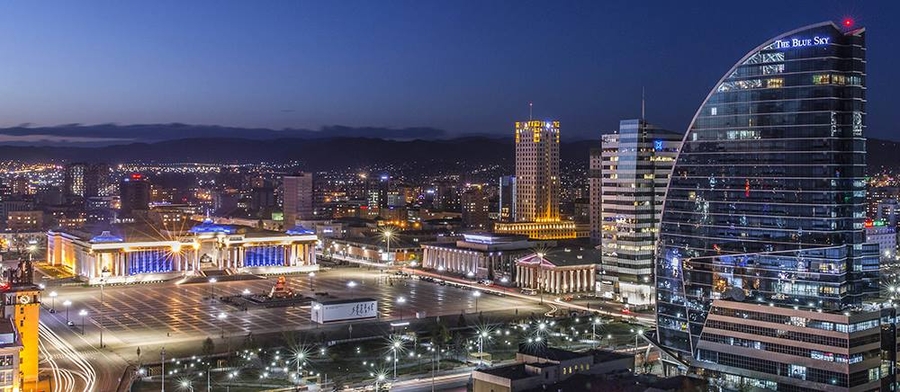
Citizens of Thirty Four Countries to be Exempted From Visa Requirements www.montsame.mn
In accordance with its decision to declare 2023-2025 as the “Years to Visit Mongolia”, the Cabinet made a decision to exempt visa requirements from the citizens of 34 countries for stays of up to 30 days during its
This decision is believed to have a positive impact on expanding the tourism industry, recovering the economy, and facilitating the travel requirements of Mongolian citizens to foreign countries.
The citizens of the following countries will be subject to the Cabinet’s decision:
Austria, Belgium, Hungary, Greece, Denmark, Spain, Italy, Latvia, Lithuania, Liechtenstein, Luxembourg, Malta, the Netherlands, Poland, Portugal, Slovakia, Slovenia, Finland, France, Croatia, Czech, Sweden, Estonia, Norway, Iceland, Switzerland, Bulgaria, Ireland, Cyprus, Romania, Monaco, UK, Australia, and New Zealand.
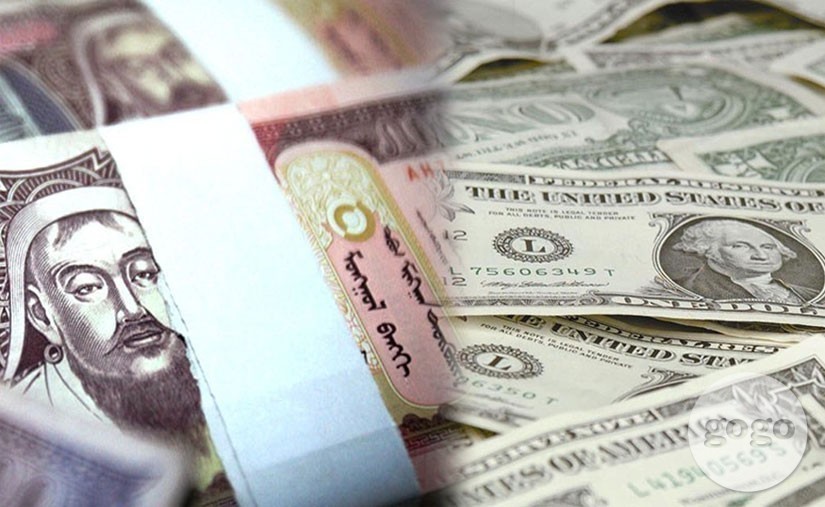
Mongolia avoids a risk of declaring default www.news.mn
Mongolia’s foreign exchange (forex) reserves rose to USD 3.4 billion at the end of 2022. Therefore, country of 3.4 million was able to avoid a big risk of entering into a program with the International Monetary Fund and declaring default.
Due to the deepening of a current account deficit caused by external and internal economic conditions, Mongolia’s forex reserves had shrunk to USD 2.6 billion at the end of August, hitting the lowest level since 2017.
Mongolia must make sovereign bond payments in the coming two years. The Government will pay USD 1.3 billion in 2023 alone. Therefore, the Government need to increase the forex reserves.
Mongolia’s forex reserves stood at 4.9 billion dollars at the end of April 2021, hitting an all-time high.
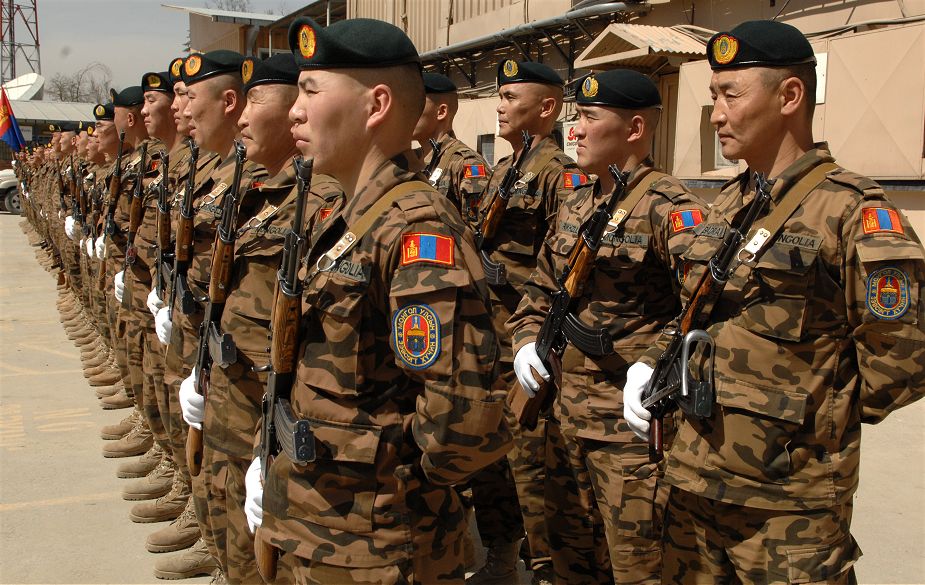
Mongolian peacekeeper dies of malaria www.news.mn
Mongolian Armed Forces has reported that Mongolian peacekeepers were infected with malaria while serving with a UN peacekeeping in Sudan.
Out of 850 military personnel, nine were infected and have been receiving treatment in Mongolia. Unfortunately, a peacekeeper has died of the deadly disease after returning Ulaanbaatar from South Sudan.
The peacekeepers began showing symptoms of malaria since returning Mongolia and they were hospitalized. Later, one of the servicemen died in the Military Central Hospital.
The fourth unit of the 11th Motorized Rifle Battalion of Mongolia, which has played a role in the United Nations “UNMISS” peacekeeping operation in the Republic of South Sudan, returned home on 21 December, 2022.
The last or fifth round will return to the country on the 15th of this month.

Mongolia’s population stands at 3.45 million at the end of 2022 www.news.mn
According to B.Batmunkh, Chairman of the National Statistics Office, Mongolia’s population growth has been slowing down since 2020.
The population of the country had grown by an average annual rate of 2.2 percent from 2010 to 2020. However, the average annual growth rate has decreased to 1.5 percent since 2020, due to the slowdown is mainly related to the COVID-19 pandemic and economic difficulties.
On average, 200 to 240 children are born each day, while over 40 people die.
Mongolia’s population stood at 3.45 million at the end of 2022. Back in January 2015, Mongolia’s population hit 3 million.
Mongolia, with a land area of 1,564,116 square km, is the most sparsely populated country in the world.
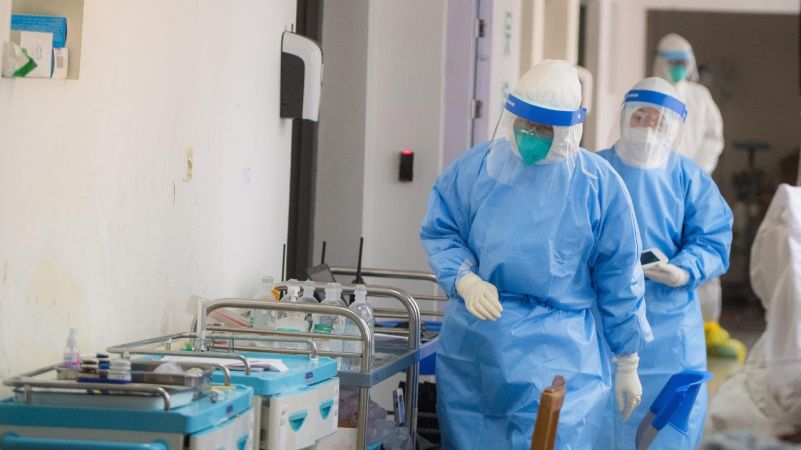
Mongolia reports 27 new coronavirus cases www.akipress.com
Mongolia registered 27 new coronavirus cases for the past day.
These cases include 8 contacts of earlier confirmed cases in Ulaanbaatar, 19 cases in the regions of the country. No new imported cases were registered for the past day.
The COVID-19 death toll stands at 2,136.
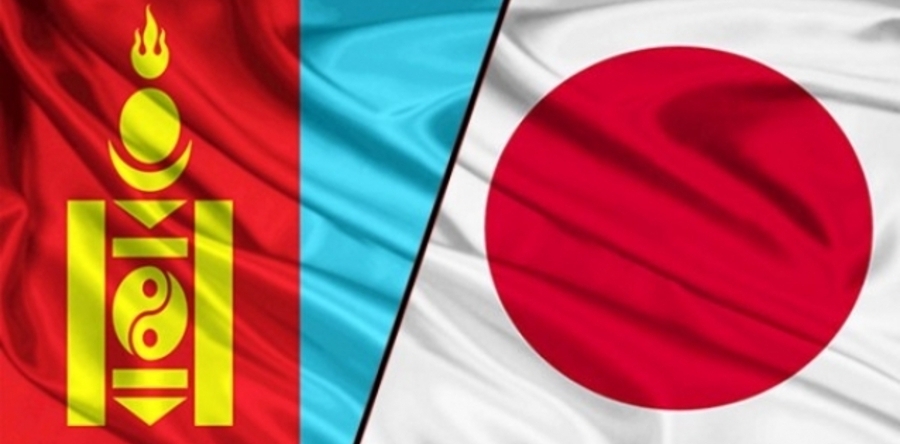
Signing of Record of Discussions on Technical Cooperation Project with Mongolia: Project for strengthening the self-reliance support system by focusing on the creation of job opportunities for people in need www.jica.go.jp
On December 28, 2022 the Japan International Cooperation Agency (JICA) signed a Record of Discussions with the Government of Mongolia in Ulaanbaatar for a technical cooperation project, “Project to Strengthen Self-Reliance Support System Focusing on Creation of Job Opportunities for People in Need”.
In Mongolia, the development of mineral resources in the early 2010s led to rapid economic growth, but such growth has remained sluggish ever since. While the country’s poverty rate temporarily decreased from 38.8% in 2010 to 21.6% in 2014, the subsequent economic slump caused the rate to rise again to 29.6% in 2016 and to remain high, recorded as 27.8% in 2020.
In response to this economic stagnation, the Mongolian government has initiated policies to reduce the amount of social welfare expenditure as a percentage of public finances. As a part of this initiative, and in order to promote the policy “Social Assistance to Employment”, the government has tightened the conditions for receiving cash payments for the poor, such as requiring registration with a vocational training mediation agency. However, households and individuals in need who rely on social welfare services for their livelihoods are not immediately able to find jobs even after registering with a vocational training agency. In addition, the system for connecting such people to employment is not fully in place. Under these circumstances, and with the amendment of the Social Welfare Law and the Employment Promotion Law in 2022, the Mongolian government aims to improve the employment support system for households and individuals in need.
This project will support the improvement of employment-readiness support services for households and individuals in need in Mongolia and is expected to lead to the self-reliance and social participation of the population that is dependent on social welfare services. It also aims to realize an inclusive society and to contribute to SDGs (Sustainable Development Goals) Goal 1 (No poverty) and 8 (Decent work and economic growth).

Russian electricity exports to Asia growing – minister www.rt.com
Russia’s electricity supplies to China and Mongolia will see an overall 20% jump by the end of this year, Energy Minister Nikolay Shulginov has said.
Estimates by the Russian energy giant Inter RAO suggest that the country has supplied a record 4.4-4.5 billion kilowatt-hours (kWh) of electrical power to China in 2022. Data shows that China’s electricity consumption had risen in December due to colder weather. This has also pushed demand for coal and gas for heating higher.
“This year [2022] we can talk about the growth of eastbound [electricity] exports, that is, total exports to China and Mongolia have increased by 20%, and there will be an uptick of about 16% to China by the end of the year,” Shulginov revealed last week in an interview with the TV channel Rossiya-24.
Inter RAO’s data shows the volume of electricity supplies to China last year amounted to 3.97 billion kWh, which was 29.9% more than in 2020. Exports to Mongolia in 2021 rose to 0.49 billion kWh, up 55.9% in annual terms.
Inter RAO supplies electricity to China through three transmission lines that are capable of delivering up to 7 billion kilowatt-hours of electrical power per year.
In the past 30 years since it started buying electricity from Russia, China has imported over 30,000 GWh. The power is used in the three northeastern provinces of Liaoning, Heilongjiang and Jilin.
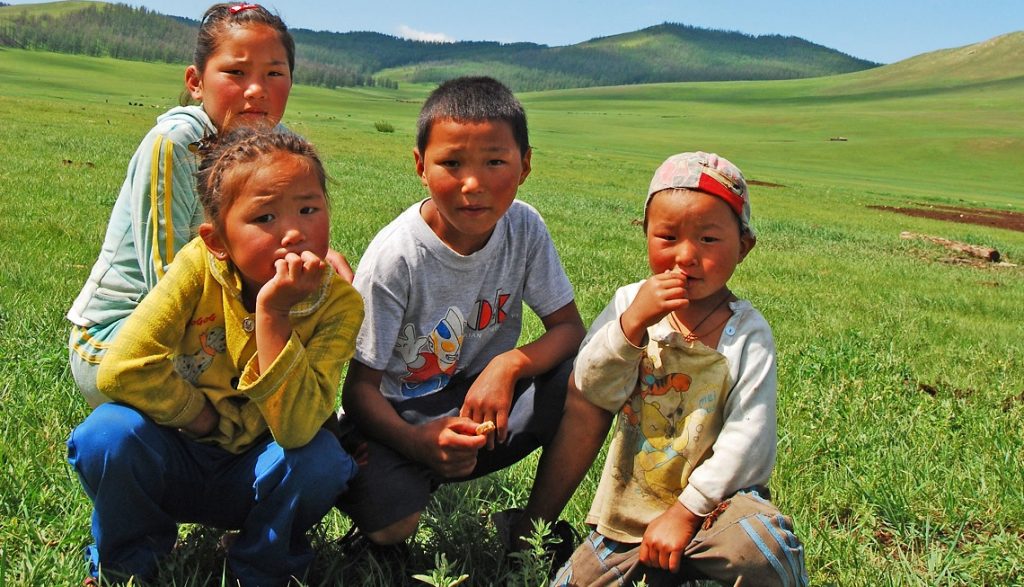
Mongolia's population growth slows down since 2020 www.xinhuanet.com
Mongolia's population growth has been slowing down since 2020, Chairman of the National Statistics Office Batmunkh Batdavaa said Tuesday.
The population of the country had grown by an average annual rate of 2.2 percent from 2010 to 2020, he said.
However, the average annual growth rate has decreased to 1.5 percent since 2020, Batdavaa said, noting that the slowdown is mainly related to the COVID-19 pandemic and economic difficulties.
The Asian country's population stood at 3.45 million at the end of 2022.
Mongolia, with a land area of 1,564,116 square km, is the most sparsely populated country in the world.

North China's Ganqmod Port sees growth in goods shipment in 2022 www.xinhuanet.com
The goods shipment volume via Ganqmod Port in North China's Inner Mongolia autonomous region exceeded 19 million metric tons in 2022, making it the highway port with the largest shipment volume between China and Mongolia.
This figure is 2.44 times that of 2021, according to the Ganqmod Port management committee in the city of Bayan Nur. Of the goods, imported coal exceeded 18 million tons, soaring nearly 160 percent year-on-year, while exported goods reached 257,700 tons, up more than 74 percent year-on-year.
In 2021, affected by the COVID-19 pandemic and other factors, the shipment volume of the port decreased significantly. In 2022, Inner Mongolia implemented innovative measures -- including improving the business environment and intelligent customs clearance -- to promote the recovery of the shipment volume at the port.
Currently, the daily number of inbound and outbound cargo vehicles via the port has increased to more than 3,500 from just 400 in 2009, according to the management committee.
Ganqmod Port, a major energy import channel for the country, has become an important hub on the China-Mongolia-Russia economic corridor.
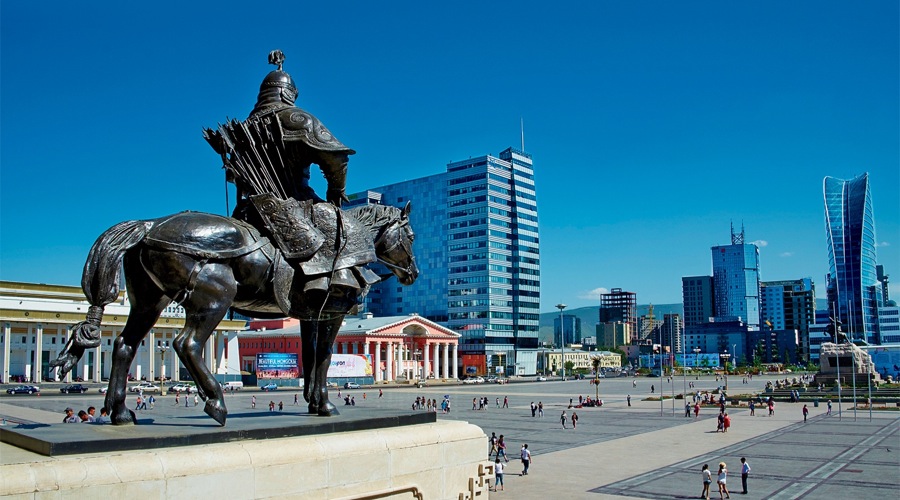
A new dataset for mongolian online handwritten recognition www.news.mn
A new traditional Mongolian word-level online handwriting dataset, MOLHW is introduced. The dataset consists of handwritten Mongolian words, including 164,631 samples written by 200 writers and covering 40,605 Mongolian common words. These words were selected from a large Mongolian corpus. The coordinate points of words were collected by volunteers, who wrote the corresponding words on the dedicated application for their mobile phones.
With the popularity of mobile phones and digital devices, more applications of handwriting recognition have emerged, such as the handwriting input method, signature recognition, and business card recognition. In the Inner Mongolia Autonomous Region, China, about 4 million people speak and write the traditional Mongolian language. However, owing to the lack of datasets, the development of Mongolian online handwriting recognition has been slow.
In Mongolian online handwriting recognition, to our knowledge, MRG-OHMW is the first publicly available database for online handwritten Mongolian. The main shortcoming of this dataset is that the vocabulary only covers 946 Mongolian words, which is too small for Mongolian, and the handwriting trajectories were collected by an Anoto pen on paper, making them different from trajectories written with fingers on a touch screen.
The MOLHW dataset is now freely available to researchers for various Mongolian online text-related applications, such as Mongolian online text recognition, handwritten text generation, writer identification and verification, and signature recognition. The main contributions of this paper can thus be summarized as follows.
The creation of an open vocabulary benchmarking dataset of a Mongolian online handwritten dataset, MOHLW, which includes 164,631 samples written by 200 writers and covers 40,605 common Mongolian words.
The development of tools, techniques, and procedures for Mongolian online text collection, verification, and transliteration.
The development of a proposed benchmark model for recognition of online Mongolian handwritten words using the encoder–decoder model.
A comparison of the performance of different models on this dataset.
Like English, traditional Mongolian is a phonetic script, with 35 letters. Unlike letters in the Latin alphabet, Mongolian letters have different shapes depending on the position and context in a word.
- «
- 1
- 2
- 3
- 4
- 5
- 6
- 7
- 8
- 9
- 10
- 11
- 12
- 13
- 14
- 15
- 16
- 17
- 18
- 19
- 20
- 21
- 22
- 23
- 24
- 25
- 26
- 27
- 28
- 29
- 30
- 31
- 32
- 33
- 34
- 35
- 36
- 37
- 38
- 39
- 40
- 41
- 42
- 43
- 44
- 45
- 46
- 47
- 48
- 49
- 50
- 51
- 52
- 53
- 54
- 55
- 56
- 57
- 58
- 59
- 60
- 61
- 62
- 63
- 64
- 65
- 66
- 67
- 68
- 69
- 70
- 71
- 72
- 73
- 74
- 75
- 76
- 77
- 78
- 79
- 80
- 81
- 82
- 83
- 84
- 85
- 86
- 87
- 88
- 89
- 90
- 91
- 92
- 93
- 94
- 95
- 96
- 97
- 98
- 99
- 100
- 101
- 102
- 103
- 104
- 105
- 106
- 107
- 108
- 109
- 110
- 111
- 112
- 113
- 114
- 115
- 116
- 117
- 118
- 119
- 120
- 121
- 122
- 123
- 124
- 125
- 126
- 127
- 128
- 129
- 130
- 131
- 132
- 133
- 134
- 135
- 136
- 137
- 138
- 139
- 140
- 141
- 142
- 143
- 144
- 145
- 146
- 147
- 148
- 149
- 150
- 151
- 152
- 153
- 154
- 155
- 156
- 157
- 158
- 159
- 160
- 161
- 162
- 163
- 164
- 165
- 166
- 167
- 168
- 169
- 170
- 171
- 172
- 173
- 174
- 175
- 176
- 177
- 178
- 179
- 180
- 181
- 182
- 183
- 184
- 185
- 186
- 187
- 188
- 189
- 190
- 191
- 192
- 193
- 194
- 195
- 196
- 197
- 198
- 199
- 200
- 201
- 202
- 203
- 204
- 205
- 206
- 207
- 208
- 209
- 210
- 211
- 212
- 213
- 214
- 215
- 216
- 217
- 218
- 219
- 220
- 221
- 222
- 223
- 224
- 225
- 226
- 227
- 228
- 229
- 230
- 231
- 232
- 233
- 234
- 235
- 236
- 237
- 238
- 239
- 240
- 241
- 242
- 243
- 244
- 245
- 246
- 247
- 248
- 249
- 250
- 251
- 252
- 253
- 254
- 255
- 256
- 257
- 258
- 259
- 260
- 261
- 262
- 263
- 264
- 265
- 266
- 267
- 268
- 269
- 270
- 271
- 272
- 273
- 274
- 275
- 276
- 277
- 278
- 279
- 280
- 281
- 282
- 283
- 284
- 285
- 286
- 287
- 288
- 289
- 290
- 291
- 292
- 293
- 294
- 295
- 296
- 297
- 298
- 299
- 300
- 301
- 302
- 303
- 304
- 305
- 306
- 307
- 308
- 309
- 310
- 311
- 312
- 313
- 314
- 315
- 316
- 317
- 318
- 319
- 320
- 321
- 322
- 323
- 324
- 325
- 326
- 327
- 328
- 329
- 330
- 331
- 332
- 333
- 334
- 335
- 336
- 337
- 338
- 339
- 340
- 341
- 342
- 343
- 344
- 345
- 346
- 347
- 348
- 349
- 350
- 351
- 352
- 353
- 354
- 355
- 356
- 357
- 358
- 359
- 360
- 361
- 362
- 363
- 364
- 365
- 366
- 367
- 368
- 369
- 370
- 371
- 372
- 373
- 374
- 375
- 376
- 377
- 378
- 379
- 380
- 381
- 382
- 383
- 384
- 385
- 386
- 387
- 388
- 389
- 390
- 391
- 392
- 393
- 394
- 395
- 396
- 397
- 398
- 399
- 400
- 401
- 402
- 403
- 404
- 405
- 406
- 407
- 408
- 409
- 410
- 411
- 412
- 413
- 414
- 415
- 416
- 417
- 418
- 419
- 420
- 421
- 422
- 423
- 424
- 425
- 426
- 427
- 428
- 429
- 430
- 431
- 432
- 433
- 434
- 435
- 436
- 437
- 438
- 439
- 440
- 441
- 442
- 443
- 444
- 445
- 446
- 447
- 448
- 449
- 450
- 451
- 452
- 453
- 454
- 455
- 456
- 457
- 458
- 459
- 460
- 461
- 462
- 463
- 464
- 465
- 466
- 467
- 468
- 469
- 470
- 471
- 472
- 473
- 474
- 475
- 476
- 477
- 478
- 479
- 480
- 481
- 482
- 483
- 484
- 485
- 486
- 487
- 488
- 489
- 490
- 491
- 492
- 493
- 494
- 495
- 496
- 497
- 498
- 499
- 500
- 501
- 502
- 503
- 504
- 505
- 506
- 507
- 508
- 509
- 510
- 511
- 512
- 513
- 514
- 515
- 516
- 517
- 518
- 519
- 520
- 521
- 522
- 523
- 524
- 525
- 526
- 527
- 528
- 529
- 530
- 531
- 532
- 533
- 534
- 535
- 536
- 537
- 538
- 539
- 540
- 541
- 542
- 543
- 544
- 545
- 546
- 547
- 548
- 549
- 550
- 551
- 552
- 553
- 554
- 555
- 556
- 557
- 558
- 559
- 560
- 561
- 562
- 563
- 564
- 565
- 566
- 567
- 568
- 569
- 570
- 571
- 572
- 573
- 574
- 575
- 576
- 577
- 578
- 579
- 580
- 581
- 582
- 583
- 584
- 585
- 586
- 587
- 588
- 589
- 590
- 591
- 592
- 593
- 594
- 595
- 596
- 597
- 598
- 599
- 600
- 601
- 602
- 603
- 604
- 605
- 606
- 607
- 608
- 609
- 610
- 611
- 612
- 613
- 614
- 615
- 616
- 617
- 618
- 619
- 620
- 621
- 622
- 623
- 624
- 625
- 626
- 627
- 628
- 629
- 630
- 631
- 632
- 633
- 634
- 635
- 636
- 637
- 638
- 639
- 640
- 641
- 642
- 643
- 644
- 645
- 646
- 647
- 648
- 649
- 650
- 651
- 652
- 653
- 654
- 655
- 656
- 657
- 658
- 659
- 660
- 661
- 662
- 663
- 664
- 665
- 666
- 667
- 668
- 669
- 670
- 671
- 672
- 673
- 674
- 675
- 676
- 677
- 678
- 679
- 680
- 681
- 682
- 683
- 684
- 685
- 686
- 687
- 688
- 689
- 690
- 691
- 692
- 693
- 694
- 695
- 696
- 697
- 698
- 699
- 700
- 701
- 702
- 703
- 704
- 705
- 706
- 707
- 708
- 709
- 710
- 711
- 712
- 713
- 714
- 715
- 716
- 717
- 718
- 719
- 720
- 721
- 722
- 723
- 724
- 725
- 726
- 727
- 728
- 729
- 730
- 731
- 732
- 733
- 734
- 735
- 736
- 737
- 738
- 739
- 740
- 741
- 742
- 743
- 744
- 745
- 746
- 747
- 748
- 749
- 750
- 751
- 752
- 753
- 754
- 755
- 756
- 757
- 758
- 759
- 760
- 761
- 762
- 763
- 764
- 765
- 766
- 767
- 768
- 769
- 770
- 771
- 772
- 773
- 774
- 775
- 776
- 777
- 778
- 779
- 780
- 781
- 782
- 783
- 784
- 785
- 786
- 787
- 788
- 789
- 790
- 791
- 792
- 793
- 794
- 795
- 796
- 797
- 798
- 799
- 800
- 801
- 802
- 803
- 804
- 805
- 806
- 807
- 808
- 809
- 810
- 811
- 812
- 813
- 814
- 815
- 816
- 817
- 818
- 819
- 820
- 821
- 822
- 823
- 824
- 825
- 826
- 827
- 828
- 829
- 830
- 831
- 832
- 833
- 834
- 835
- 836
- 837
- 838
- 839
- 840
- 841
- 842
- 843
- 844
- 845
- 846
- 847
- 848
- 849
- 850
- 851
- 852
- 853
- 854
- 855
- 856
- 857
- 858
- 859
- 860
- 861
- 862
- 863
- 864
- 865
- 866
- 867
- 868
- 869
- 870
- 871
- 872
- 873
- 874
- 875
- 876
- 877
- 878
- 879
- 880
- 881
- 882
- 883
- 884
- 885
- 886
- 887
- 888
- 889
- 890
- 891
- 892
- 893
- 894
- 895
- 896
- 897
- 898
- 899
- 900
- 901
- 902
- 903
- 904
- 905
- 906
- 907
- 908
- 909
- 910
- 911
- 912
- 913
- 914
- 915
- 916
- 917
- 918
- 919
- 920
- 921
- 922
- 923
- 924
- 925
- 926
- 927
- 928
- 929
- 930
- 931
- 932
- 933
- 934
- 935
- 936
- 937
- 938
- 939
- 940
- 941
- 942
- 943
- 944
- 945
- 946
- 947
- 948
- 949
- 950
- 951
- 952
- 953
- 954
- 955
- 956
- 957
- 958
- 959
- 960
- 961
- 962
- 963
- 964
- 965
- 966
- 967
- 968
- 969
- 970
- 971
- 972
- 973
- 974
- 975
- 976
- 977
- 978
- 979
- 980
- 981
- 982
- 983
- 984
- 985
- 986
- 987
- 988
- 989
- 990
- 991
- 992
- 993
- 994
- 995
- 996
- 997
- 998
- 999
- 1000
- 1001
- 1002
- 1003
- 1004
- 1005
- 1006
- 1007
- 1008
- 1009
- 1010
- 1011
- 1012
- 1013
- 1014
- 1015
- 1016
- 1017
- 1018
- 1019
- 1020
- 1021
- 1022
- 1023
- 1024
- 1025
- 1026
- 1027
- 1028
- 1029
- 1030
- 1031
- 1032
- 1033
- 1034
- 1035
- 1036
- 1037
- 1038
- 1039
- 1040
- 1041
- 1042
- 1043
- 1044
- 1045
- 1046
- 1047
- 1048
- 1049
- 1050
- 1051
- 1052
- 1053
- 1054
- 1055
- 1056
- 1057
- 1058
- 1059
- 1060
- 1061
- 1062
- 1063
- 1064
- 1065
- 1066
- 1067
- 1068
- 1069
- 1070
- 1071
- 1072
- 1073
- 1074
- 1075
- 1076
- 1077
- 1078
- 1079
- 1080
- 1081
- 1082
- 1083
- 1084
- 1085
- 1086
- 1087
- 1088
- 1089
- 1090
- 1091
- 1092
- 1093
- 1094
- 1095
- 1096
- 1097
- 1098
- 1099
- 1100
- 1101
- 1102
- 1103
- 1104
- 1105
- 1106
- 1107
- 1108
- 1109
- 1110
- 1111
- 1112
- 1113
- 1114
- 1115
- 1116
- 1117
- 1118
- 1119
- 1120
- 1121
- 1122
- 1123
- 1124
- 1125
- 1126
- 1127
- 1128
- 1129
- 1130
- 1131
- 1132
- 1133
- 1134
- 1135
- 1136
- 1137
- 1138
- 1139
- 1140
- 1141
- 1142
- 1143
- 1144
- 1145
- 1146
- 1147
- 1148
- 1149
- 1150
- 1151
- 1152
- 1153
- 1154
- 1155
- 1156
- 1157
- 1158
- 1159
- 1160
- 1161
- 1162
- 1163
- 1164
- 1165
- 1166
- 1167
- 1168
- 1169
- 1170
- 1171
- 1172
- 1173
- 1174
- 1175
- 1176
- 1177
- 1178
- 1179
- 1180
- 1181
- 1182
- 1183
- 1184
- 1185
- 1186
- 1187
- 1188
- 1189
- 1190
- 1191
- 1192
- 1193
- 1194
- 1195
- 1196
- 1197
- 1198
- 1199
- 1200
- 1201
- 1202
- 1203
- 1204
- 1205
- 1206
- 1207
- 1208
- 1209
- 1210
- 1211
- 1212
- 1213
- 1214
- 1215
- 1216
- 1217
- 1218
- 1219
- 1220
- 1221
- 1222
- 1223
- 1224
- 1225
- 1226
- 1227
- 1228
- 1229
- 1230
- 1231
- 1232
- 1233
- 1234
- 1235
- 1236
- 1237
- 1238
- 1239
- 1240
- 1241
- 1242
- 1243
- 1244
- 1245
- 1246
- 1247
- 1248
- 1249
- 1250
- 1251
- 1252
- 1253
- 1254
- 1255
- 1256
- 1257
- 1258
- 1259
- 1260
- 1261
- 1262
- 1263
- 1264
- 1265
- 1266
- 1267
- 1268
- 1269
- 1270
- 1271
- 1272
- 1273
- 1274
- 1275
- 1276
- 1277
- 1278
- 1279
- 1280
- 1281
- 1282
- 1283
- 1284
- 1285
- 1286
- 1287
- 1288
- 1289
- 1290
- 1291
- 1292
- 1293
- 1294
- 1295
- 1296
- 1297
- 1298
- 1299
- 1300
- 1301
- 1302
- 1303
- 1304
- 1305
- 1306
- 1307
- 1308
- 1309
- 1310
- 1311
- 1312
- 1313
- 1314
- 1315
- 1316
- 1317
- 1318
- 1319
- 1320
- 1321
- 1322
- 1323
- 1324
- 1325
- 1326
- 1327
- 1328
- 1329
- 1330
- 1331
- 1332
- 1333
- 1334
- 1335
- 1336
- 1337
- 1338
- 1339
- 1340
- 1341
- 1342
- 1343
- 1344
- 1345
- 1346
- 1347
- 1348
- 1349
- 1350
- 1351
- 1352
- 1353
- 1354
- 1355
- 1356
- 1357
- 1358
- 1359
- 1360
- 1361
- 1362
- 1363
- 1364
- 1365
- 1366
- 1367
- 1368
- 1369
- 1370
- 1371
- 1372
- 1373
- 1374
- 1375
- 1376
- 1377
- 1378
- 1379
- 1380
- 1381
- 1382
- 1383
- 1384
- 1385
- 1386
- 1387
- 1388
- 1389
- 1390
- 1391
- 1392
- 1393
- 1394
- 1395
- 1396
- 1397
- 1398
- 1399
- 1400
- 1401
- 1402
- 1403
- 1404
- 1405
- 1406
- 1407
- 1408
- 1409
- 1410
- 1411
- 1412
- 1413
- 1414
- 1415
- 1416
- 1417
- 1418
- 1419
- 1420
- 1421
- 1422
- 1423
- 1424
- 1425
- 1426
- 1427
- 1428
- 1429
- 1430
- 1431
- 1432
- 1433
- 1434
- 1435
- 1436
- 1437
- 1438
- 1439
- 1440
- 1441
- 1442
- 1443
- 1444
- 1445
- 1446
- 1447
- 1448
- 1449
- 1450
- 1451
- 1452
- 1453
- 1454
- 1455
- 1456
- 1457
- 1458
- 1459
- 1460
- 1461
- 1462
- 1463
- 1464
- 1465
- 1466
- 1467
- 1468
- 1469
- 1470
- 1471
- 1472
- 1473
- 1474
- 1475
- 1476
- 1477
- 1478
- 1479
- 1480
- 1481
- 1482
- 1483
- 1484
- 1485
- 1486
- 1487
- 1488
- 1489
- 1490
- 1491
- 1492
- 1493
- 1494
- 1495
- 1496
- 1497
- 1498
- 1499
- 1500
- 1501
- 1502
- 1503
- 1504
- 1505
- 1506
- 1507
- 1508
- 1509
- 1510
- 1511
- 1512
- 1513
- 1514
- 1515
- 1516
- 1517
- 1518
- 1519
- 1520
- 1521
- 1522
- 1523
- 1524
- 1525
- 1526
- 1527
- 1528
- 1529
- 1530
- 1531
- 1532
- 1533
- 1534
- 1535
- 1536
- 1537
- 1538
- 1539
- 1540
- 1541
- 1542
- 1543
- 1544
- 1545
- 1546
- 1547
- 1548
- 1549
- 1550
- 1551
- 1552
- 1553
- 1554
- 1555
- 1556
- 1557
- 1558
- 1559
- 1560
- 1561
- 1562
- 1563
- 1564
- 1565
- 1566
- 1567
- 1568
- 1569
- 1570
- 1571
- 1572
- 1573
- 1574
- 1575
- 1576
- 1577
- 1578
- 1579
- 1580
- 1581
- 1582
- 1583
- 1584
- 1585
- 1586
- 1587
- 1588
- 1589
- 1590
- 1591
- 1592
- 1593
- 1594
- 1595
- 1596
- 1597
- 1598
- 1599
- 1600
- 1601
- 1602
- 1603
- 1604
- 1605
- 1606
- 1607
- 1608
- 1609
- 1610
- 1611
- 1612
- 1613
- 1614
- 1615
- 1616
- 1617
- 1618
- 1619
- 1620
- 1621
- 1622
- 1623
- 1624
- 1625
- 1626
- 1627
- 1628
- 1629
- 1630
- 1631
- 1632
- 1633
- 1634
- 1635
- 1636
- 1637
- 1638
- 1639
- 1640
- 1641
- 1642
- 1643
- 1644
- 1645
- 1646
- 1647
- 1648
- 1649
- 1650
- 1651
- 1652
- 1653
- 1654
- 1655
- 1656
- 1657
- 1658
- 1659
- 1660
- 1661
- 1662
- 1663
- 1664
- 1665
- 1666
- 1667
- 1668
- 1669
- 1670
- 1671
- 1672
- 1673
- 1674
- 1675
- 1676
- 1677
- 1678
- 1679
- 1680
- 1681
- 1682
- 1683
- 1684
- 1685
- 1686
- 1687
- 1688
- 1689
- 1690
- 1691
- 1692
- 1693
- 1694
- 1695
- 1696
- 1697
- 1698
- 1699
- 1700
- 1701
- 1702
- 1703
- 1704
- 1705
- 1706
- 1707
- 1708
- 1709
- 1710
- 1711
- 1712
- 1713
- 1714
- »






